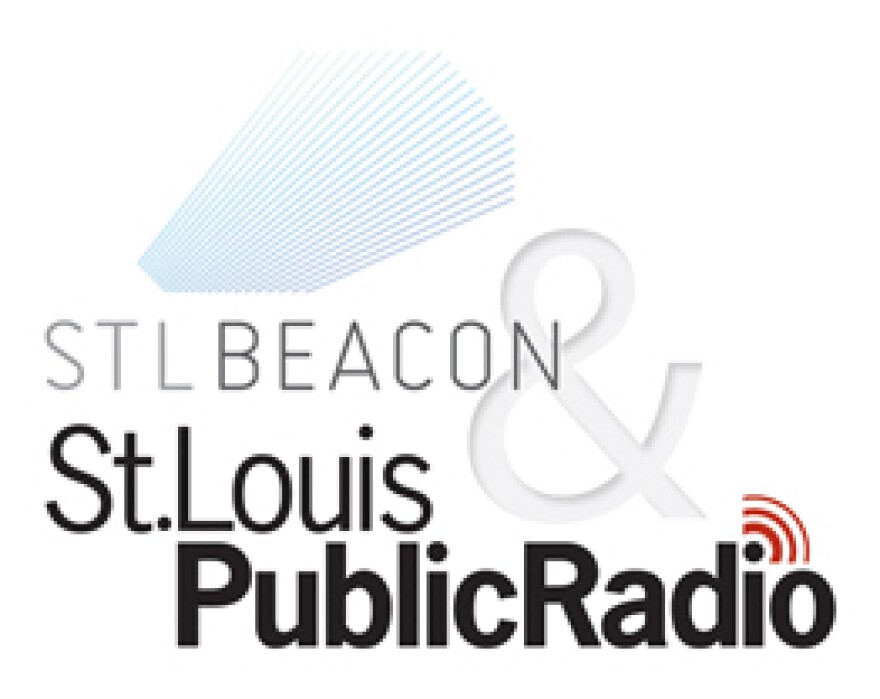Monday marks the five-year anniversary of the merger between St. Louis Public Radio and the St. Louis Beacon.
Collectively known as St. Louis Public Radio, the alliance of the two organizations was a bold move that increased the capacity for more journalists to tell more local and regional news stories.
“It has been astounding in five years what’s happened both in journalism and what’s happened in this community,” explained Tim Eby, general manager of St. Louis Public Radio. “I think St. Louis Public Radio has been able to fit in and do a pretty good job of covering this region in a much more substantial way, certainly more than what we were able to do before the merger.”
The St. Louis Beacon was an online-only news organization founded by people who had previously worked for the St. Louis Post-Dispatch.
Margaret Wolf Freivogel, a former St. Louis Post-Dispatch reporter and editor, was one of the St. Louis Beacon’s founders and became the first news leader of the combined St. Louis Public Radio/St. Louis Beacon organization.
“The region has a resource that really didn’t exist in the same way before, and at a time when the future of journalism is still very much in the air, I think that we’ve got a solid, strong organization here that’s dedicated to the right purposes,” Freivogel said.

A 2013 document outlining the vision for a merged newsroom argued that a “vigorous, powerful, forward-looking news organization can light the path to a better St. Louis and lead the way nationally in reinventing journalism as a trusted partner in a better democracy.”
Eby said the merger marked the first time in the country that an online and nonprofit news organization combined resources with a public radio station. In just the past year, he said, similar arrangements have transpired in Los Angeles, Washington and New York City.
“The vision is to get as close to the truth as you can every day and reach as many people as possible with that reporting,” Freivogel added. “Figuring out how to do that is always a work in progress.”
Perhaps the biggest test of how the merged news organization would operate came in August 2014, when Michael Brown, an unarmed 18-year-old African-American man, was shot and killed by a white police officer in Ferguson. The ensuing protests and coverage exposed systemic issues of racism and inequity and brought those issues to the attention of many people who either didn’t care or who weren’t aware of such problems.
“We learned to trust each other in moments of great challenge and danger,” Freivogel said of the combined newsroom. “We were just all-consumed with covering that story.”
A financial risk
Since the merger and up until the fiscal year that ended June 30, 2018, St. Louis Public Radio operated a budget deficit.
Although currently operating a budget surplus for the first time in the history of the combined news organization, Eby explained that the merger was a financial risk.
“At the time, we added 15 people to the payroll,” he said.
The addition of staff also came when the universities that operate most of the public radio stations in Missouri were decreasing their direct financial support.
“At the time of the merger we were raising $3 million annually from donors, and today it is over $5 million,” Eby said.
And aside from any financial concerns came changes in technology, the growth in reaching people online and the emergence of podcasts and smart speakers.
Eby said the station is continuing to expand. In addition to recently adding a reporter in Rolla, Missouri, and the announcement of an investigative reporter who starts in January, he said the station is also considering adding a reporter in the metro-east.
“The common thread is that people need solid information about what's going on in their community,” Freivogel said.
Producers’ Note: This interview was produced, written and edited without influence from St. Louis Public Radio management.
St. Louis on the Air brings you the stories of St. Louis and the people who live, work and create in our region. St. Louis on the Air host Don Marsh and producers Alex Heuer, Evie Hemphill, Lara Hamdan and Xandra Ellin give you the information you need to make informed decisions and stay in touch with our diverse and vibrant St. Louis region.



